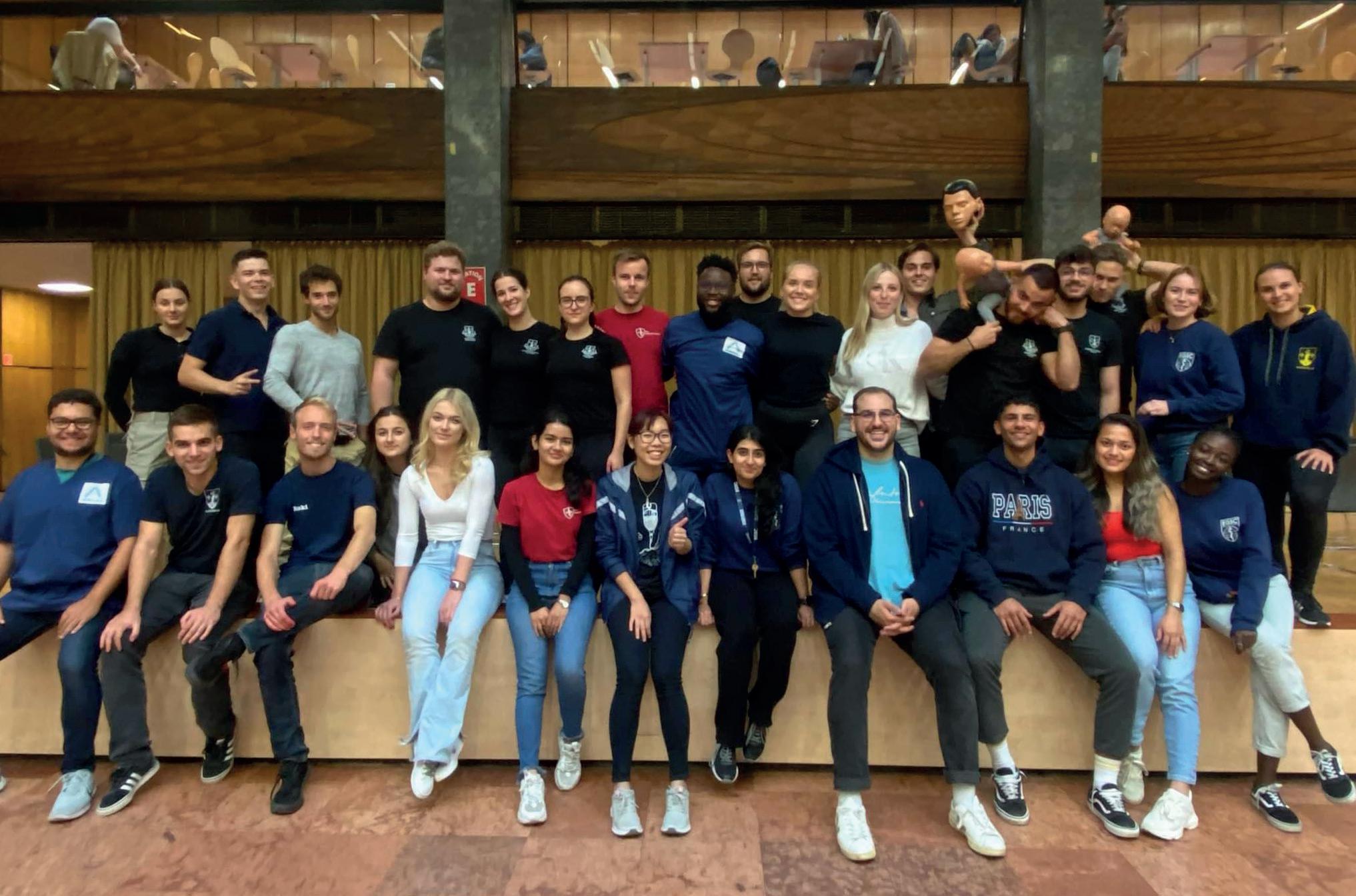
6 minute read
Catastrophe Day
from Confabula Tél
by Confabula
What is the catastrophe day, what is the concept, the whole structure?
Catastrophe day was created to present emergency to students so that they would have experience in dealing with emergency medicine outside of the hospital as well as inside of the hospital. They have met patients, they had to come up with a diagnosis, answer questions and so on... It was made as an event where students got to do some manual practice as well as make decisions to learn regarding patient care. We had 12 stations: 7 of which were run by students. We had hemorrhage control, sutures, foreign body, evacuation, eye injury, basic life support and fracture and bandages. The participants had 15-20 minutes at each post. The demonstrators told them the basic theory, after that the students themselves had to do what they were told and practice the things they were informed about. They could also ask questions if they had any. For example, at hemorrhage control, they had to stop bleeding and so on...
Advertisement
On the 5 other posts, we had doctors who came and went with the students to something we call pretriage. The participants - based on very little information - had to find out how important the different information was, where they would place the patient, and how immediate care the patient needed. They got to different rooms based on the pretriage system and then they had to ask the patient relevant questions about their disease and figure out what they would do. In the end, there was an evaluation, where they went through the possible mistakes they have done, and maybe things they could have done better. The concept of the whole event was that every student got to do some handsome practice as we are so many people in every class and it’s not possible for everyone to try to do different skills or to be able to make important decisions. So a very important concept of this was to be in smaller groups, also with different year levels. We had everything from 1st to 6th year. They had to communicate, be able to teach each other important things, and also utilize every piece of information they knew. We also wanted to give them the possibility to actually act as doctors, get to know how it feels to make a decision when the patient is right there. The decision you make has an impact on a person. They get to train emergency medi-
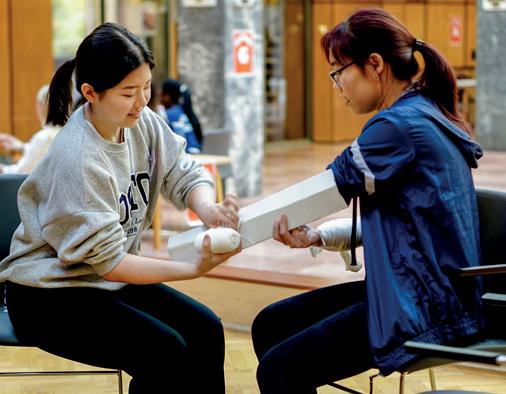
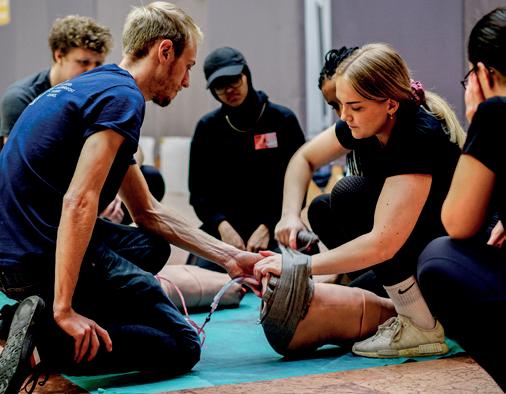
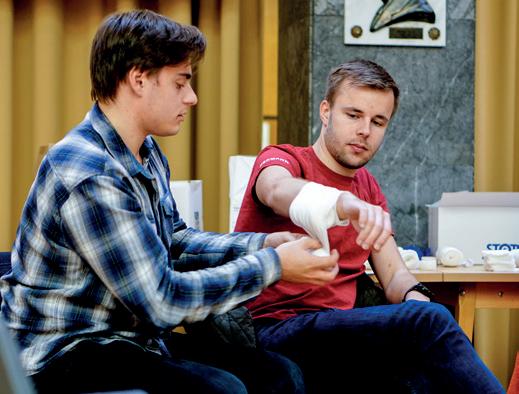
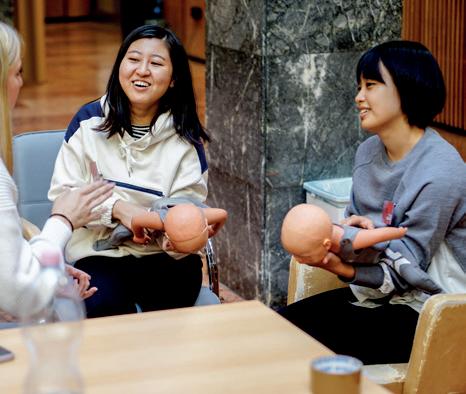
cine which is something, I would say, is very important to know as a doctor in any situation they might get in their life.
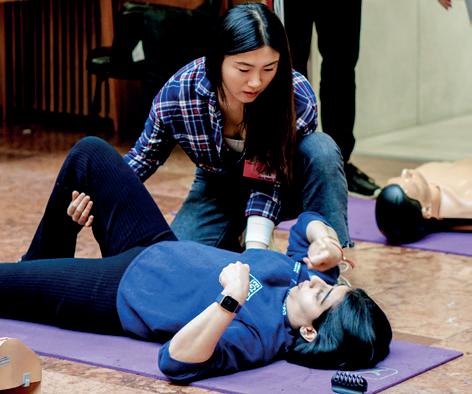
Where did the idea come from? Has there been any example of such an event elsewhere?
The idea of catastrophe day actually came from Tromsø, a place in Norway where they have something called Emergency Week. They have a full set of training for the 6th year students. They have lectures, they have seminars, and they have practice. In India, there is a Catastrophe Day, which is a big event usually in the middle of the city center. There is cooperation with the police, with the ambulance and with the hospital. When the patients are brought from the accident to the hospital, there are actually the 6th year students who are supposed to be the doctors and have to decide what kind of treatment and what to do, and so on My idea was actually taken from this and we wanted to do something similar but on a smaller scale to get the students to have this feeling of being the doctors in a safe environment where they get to train on asking questions and so on
Who was the target audience?
The target audience was everybody from medical students to pharmacy students. We were so lucky that we had people from 1st to 6th year. We targeted everyone who wanted to learn something about emergency medicine. I have talked to people and even though they were in their 6th year or 1st year they all felt like they learned something new during the day. I think that’s the goal of the whole event.
What feedback have you received?
We sent out a questionnaire after the event and we had some really great feedback. It seemed that people were really happy with the organization - how smoothly everything run as well as the event itself. We also got some great ideas that we can bring with us, that we can take into consideration when planning the event again. So all in all I’m just really happy with how it turned out.
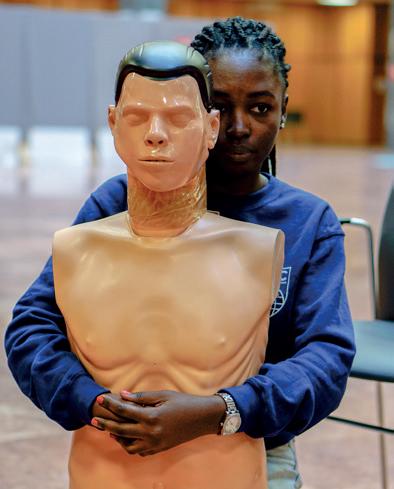
Who participated in the demonstrations?
The demonstrators were from all the societies who were cooperation. We had students from HÖK, Emergency Society, Surgical Society and EGSC. They came, they trained - maybe things they didn’t even know much about. They felt safe in what they were teaching. They did an amazing job and I think we were very lucky to have such great demonstrators with us.
Was the goal more professional development or is it more of a „fun” program with a major medical theme?
The main goal of the event was to keep it professional. To keep the knowledge right and to present relevant cases that they might encoun-
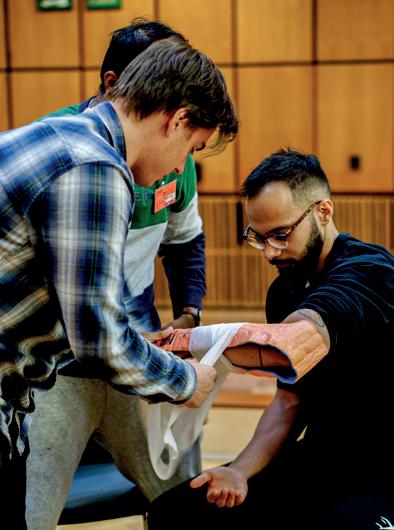
ter during their medical careers. All medical students find it fun to learn new skills, to understand what to do in different cases, when they see a problem. I think this will be something that gives you encouragement. I think making a professional event that runs mildly and people enjoy it in the sense they learn something new automatically will also be very fun. I hope everyone had a great time as well as they learned something new.
Are you planning to organize something similar in the future?
I had a really fun time developing this event and I worked with so many great people. Medical Skill Lab has been such a great cooperator on this event, we couldn’t have done it without them. However, this is my 5th year. Next year I’m going to Norway for my rotational year so unfortunately, I don’t think I would be able to do it. I hope that this cooperation between the different societies is something that we can build even stronger and that this event can proceed and grow may even bigger in the future. I think this is something that all students will benefit from, and something that we have already too little of. Emergency society and Surgical society are great at presenting, both teaching people - sutures, surgical techniques and emergency skills. I think it’s something special when these societies come together and can do something together. I think that something special and something we should absolutely keep on doing. I hope this will continue in the future. is
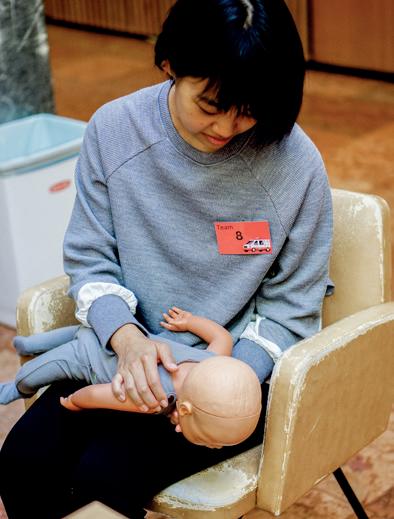
Thank you very much for your answers!
